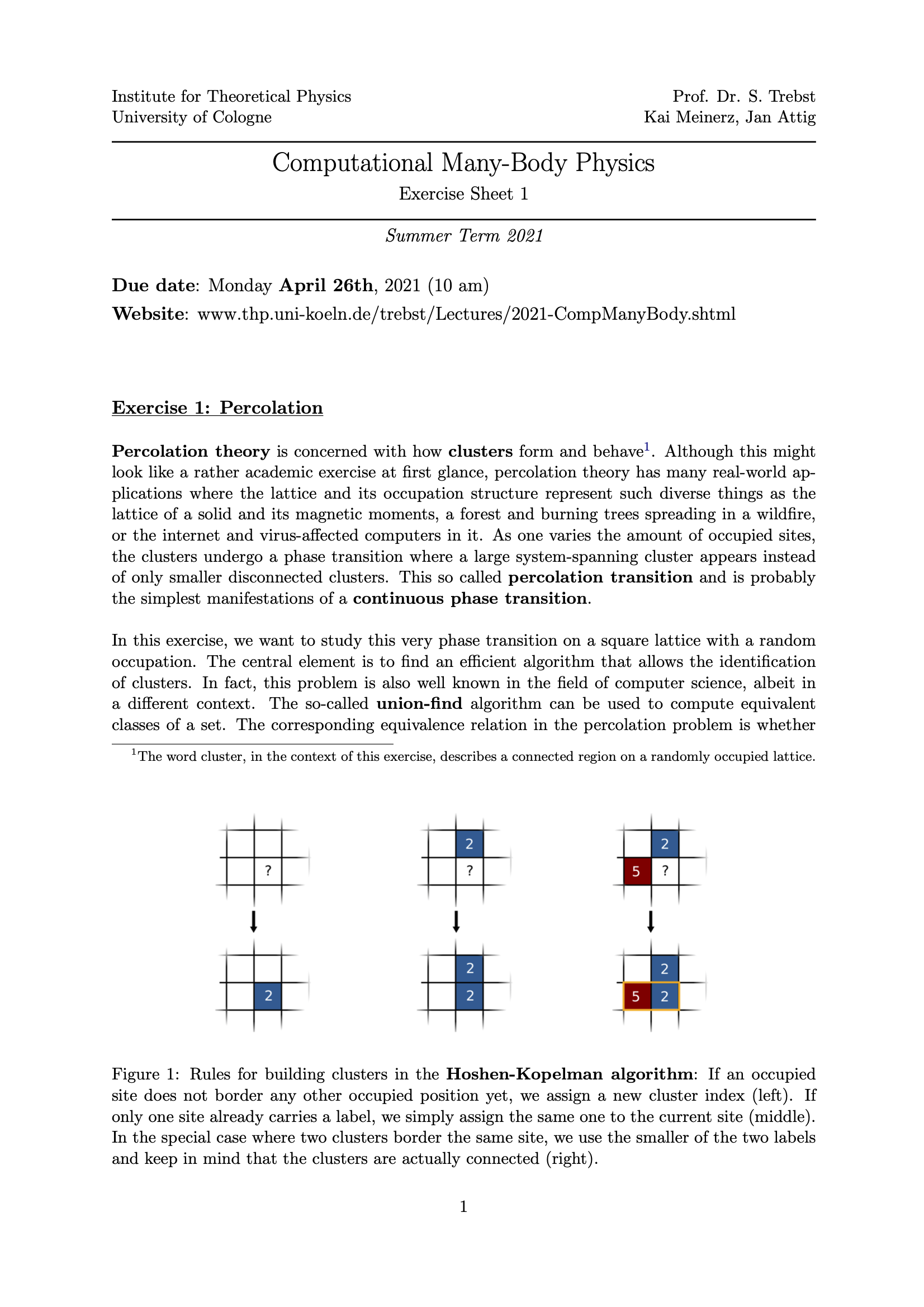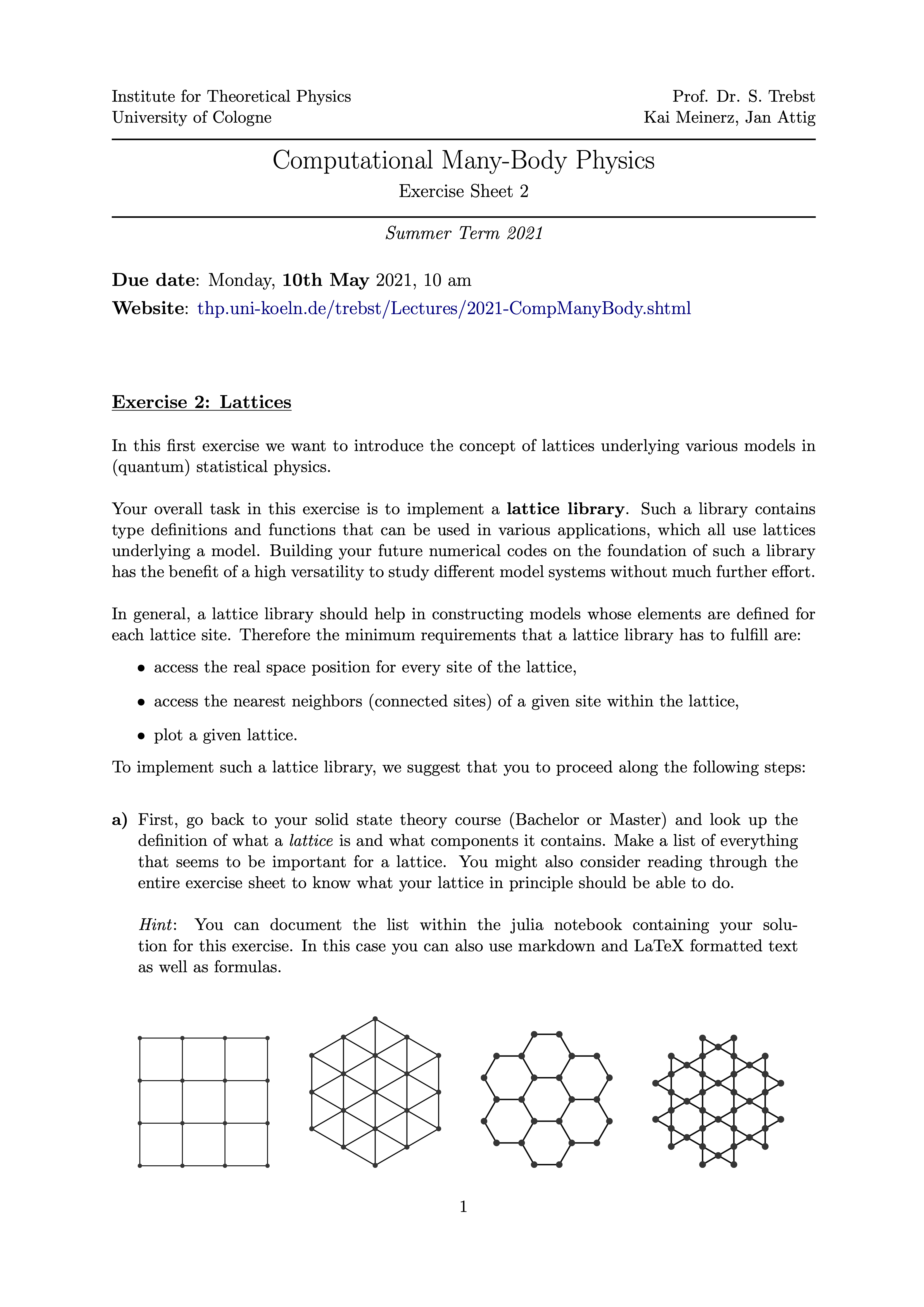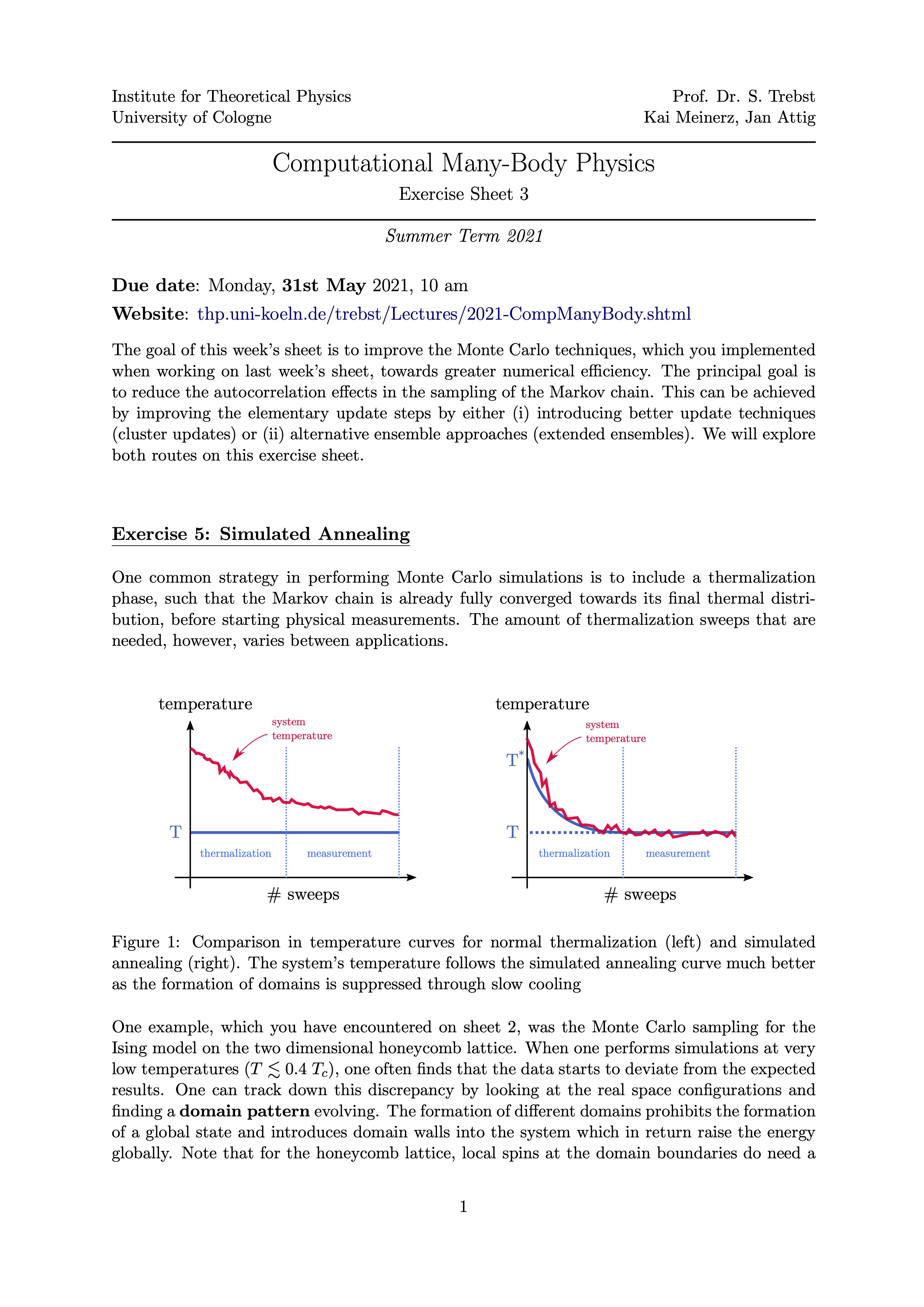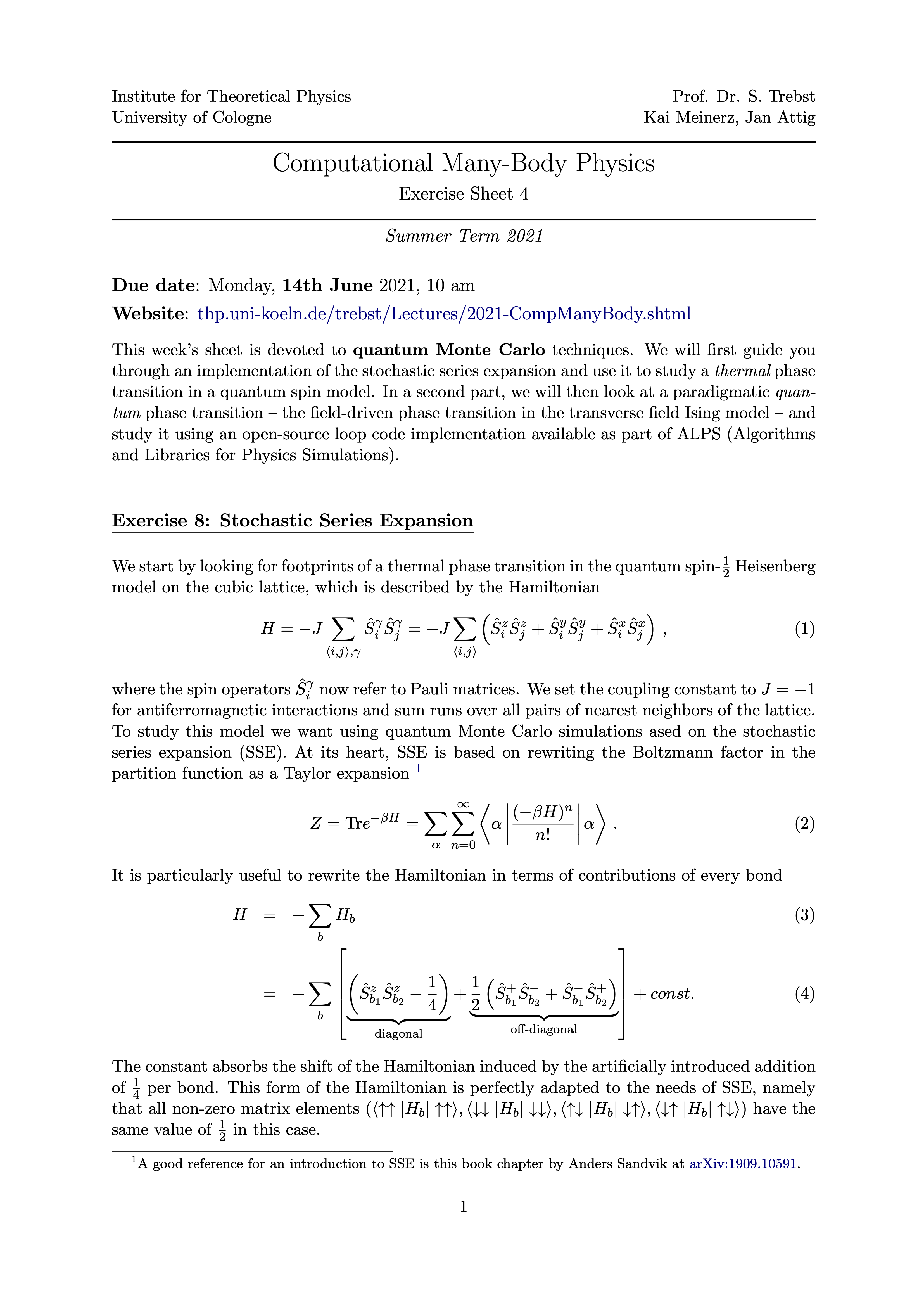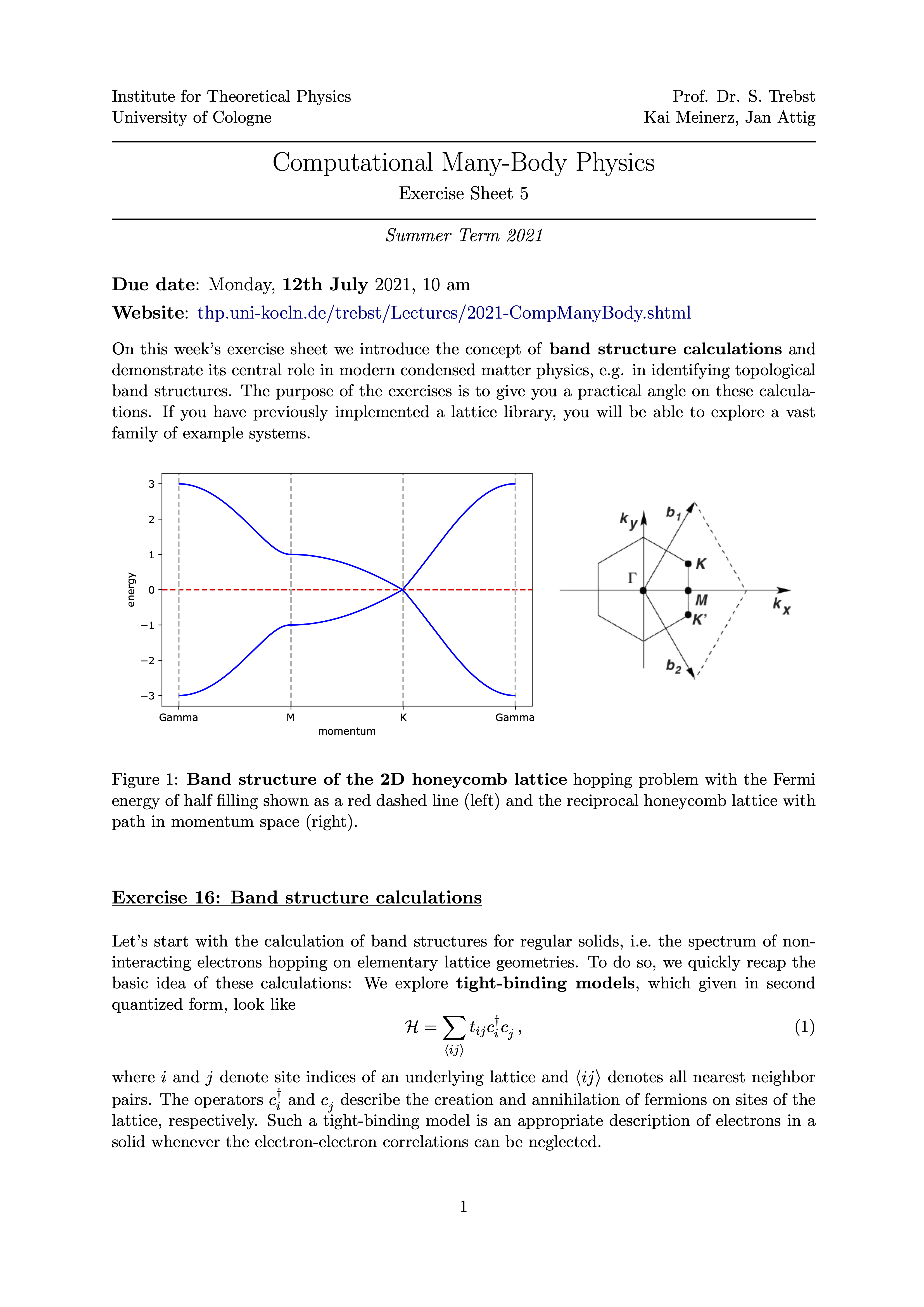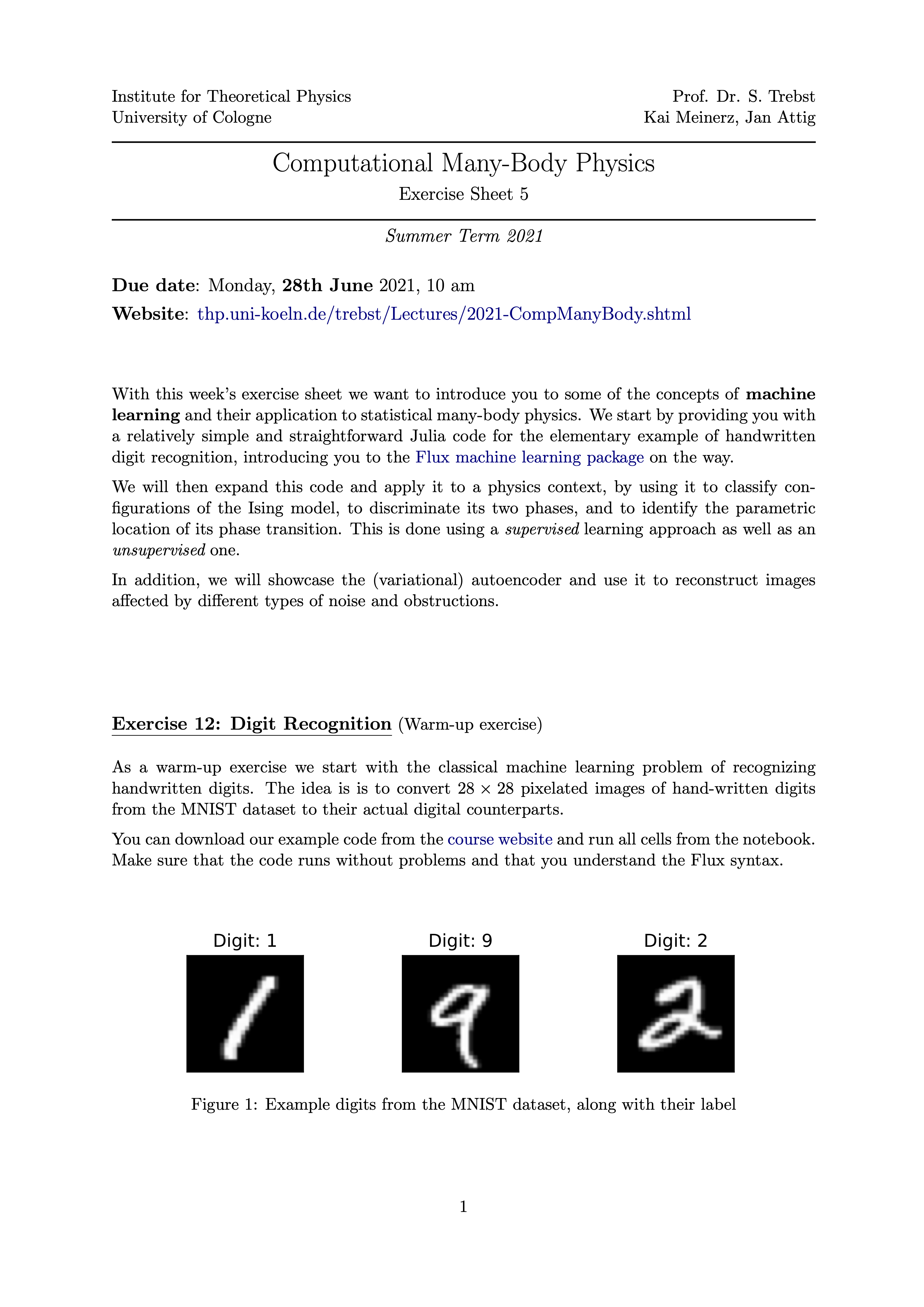Computational Many-Body Physics
winter 2025

Mo, 12.00 | weekly lecture
S. Trebst, E0.03 (ETP)
Wed, 8.15 | biweekly lecture
S. Trebst, E0.03 (ETP)
Wed, 8.15 | biweekly tutorial
Sagar Ramchandani, E0.03 (ETP)
October 22, 29; November 19; December 10, 17;
January 21; February 4
Overview
The lecture will provide an overview of modern numerical approaches to many-body systems, both classical and quantum. The in-depth introduction of elementary algorithms will include Monte Carlo methods, machine learning techniques, and entanglement based approaches, which will be complemented by an application of these methods to fundamental models and phenomena, mostly arising in the context of condensed matter physics, but we might branch out to other fields as well.Lectures
Lecture weeks (toggle):
intro |
week 1+2 |
week 3+4 |
week 5+6 |
week 7+8 |
week 9+10 |
week 11+12 |
week 13+14
Week 11 (January 5/12, 2026)
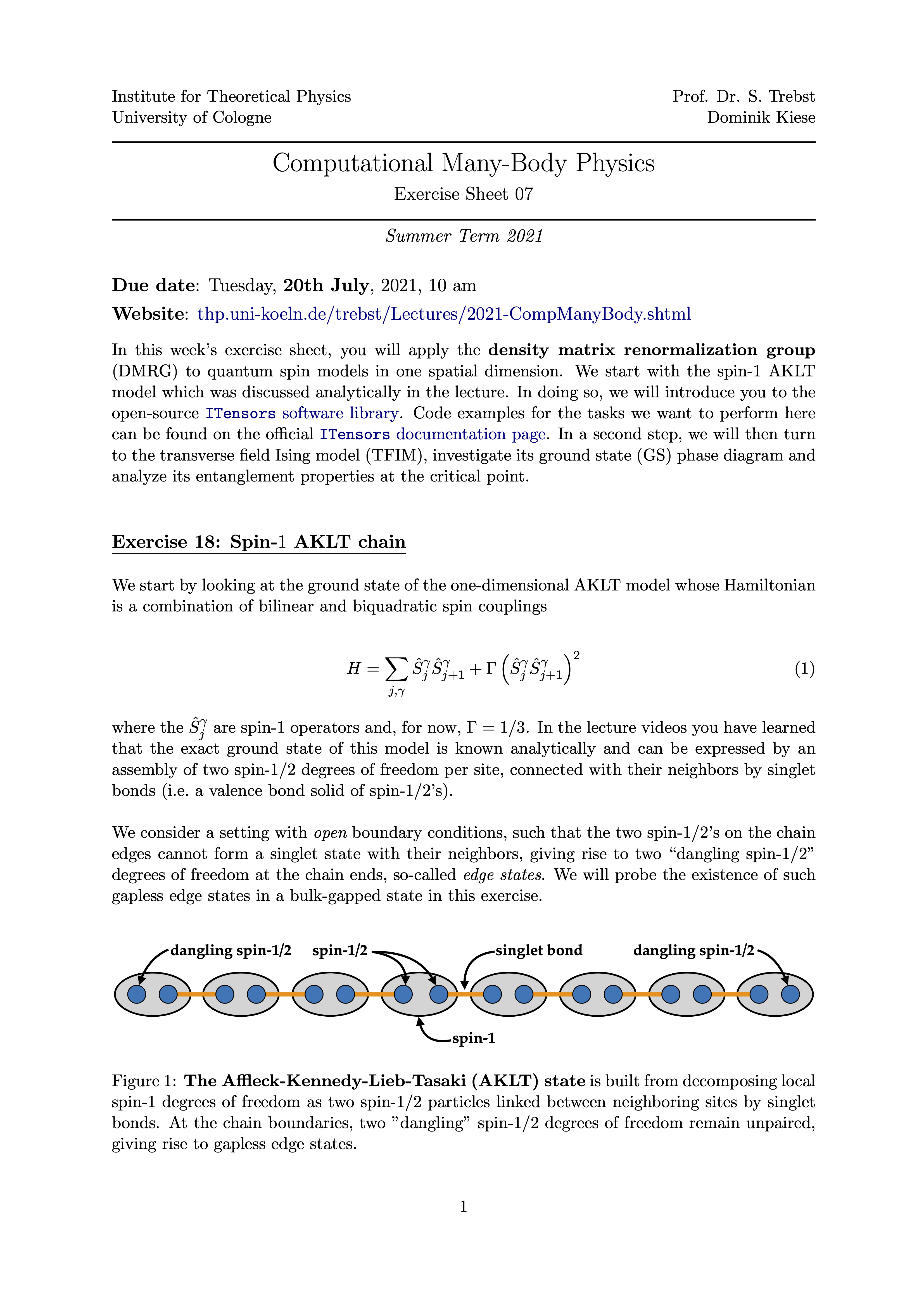
- lecture notes: entanglement entropies, replica trick, boundary law
Week 12 (January 19, 2026)
- book chapter: Entanglement and Tensor Network States by Jens Eisert
- book chapter: Entanglement in Many-Body Systems by Frank Pollmann
- book chapter: DMRG: Ground States, Time Evolution, and Spectral Functions by Ulrich Schollwöck
Syllabus
- intro:
The (quantum) many-body problem
Video V1
- part A:
Monte Carlo approaches
direct sampling [lecture notes]
percolation Video A1
phase transition & critical exponents Video A2
finite-size scaling Video A3
Markov chain Monte Carlo
elementary models of (frustrated) magnetism Video A4
Markov chains & Metropolis algorithm Video A5
autocorelation effects & error analysis Video A6
cluster updates Video A7
flat histogram sampling Video A8
optimized ensembles Video A9
quantum Monte Carlo
world-line representation Video A10
stochastic series expansion (SSE) Video A11
fermion sign problem Video A12 - part B:
Machine learning
machine learning + artificial neural networks Video B1
supervised learning + convolutional neural networks Video B2
unsupervised learning + autoencoders Video B3
reinforcement learning + restricted Boltzmann machines Video B4 - part C:
Exact diagonalization
tight-binding models Video C1
Lanczos algorithm Video C2 - part D:
Tensor network approaches
microscopic entanglement Video D1
macroscopic entanglement
entanglement entropies Video D2
replica trick & boundary law Video D3
matrix product states Video D4
density matrix renormalization group (DMRG) Video D5
Literature
General textbooks- J.M. Thijssen, Computational Physics, Cambridge University Press (2007)
available in physics student library, university library - Tao Pang, An Introduction to Computational Physics, Cambridge University Press (2006)
available in physics student library, university library - Werner Krauth, Statistical Mechanics: Algorithms and Computation, Oxford University Press (2006)
available in physics student library, university library
Specialized literature
- D.P. Landau and K. Binder, A Guide to Monte Carlo Simulations in Statistical Physics, Cambridge University Press (2005)
available in physics student library, university library - J. Gubernatis, N. Kawashima, P. Werner, Quantum Monte Carlo Methods, Cambridge University Press (2016)
available in physics student library, university library - Michael Nielsen, Neural Networks and Deep Learning
- Steven L. Brunton, J. Nathan Kutz, Data-Driven Science and Engineering, Cambridge University Press (2019)
available in physics student library, university library - J. Oitmaa, C. Hamer, W. Zheng, Series Expansion Methods, Cambridge University Press (2006)
Other resources on the web
- Boulder summer school: Computational and Conceptual Approaches to Quantum Many-Body Systems
Pedagogical introductions by some of the leaders in the field, lecture notes and videos available - 2021 CRC183 summer school: Machine Learning in Condensed Matter Physics
A nice overview of recent developments in a set of online videos
Prerequisites
The course is intended for master students; it builds on a bachelor level introduction to computational physics as it is taught in many places around the world. If you have not taken such a course, take a look at a recent version of such an introductory course by our group, e.g. Computer-Physik 2025.We do expect you to have light programming experience, preferably in Julia (which we have been teaching since summer 2016 in the undergraduate course).
